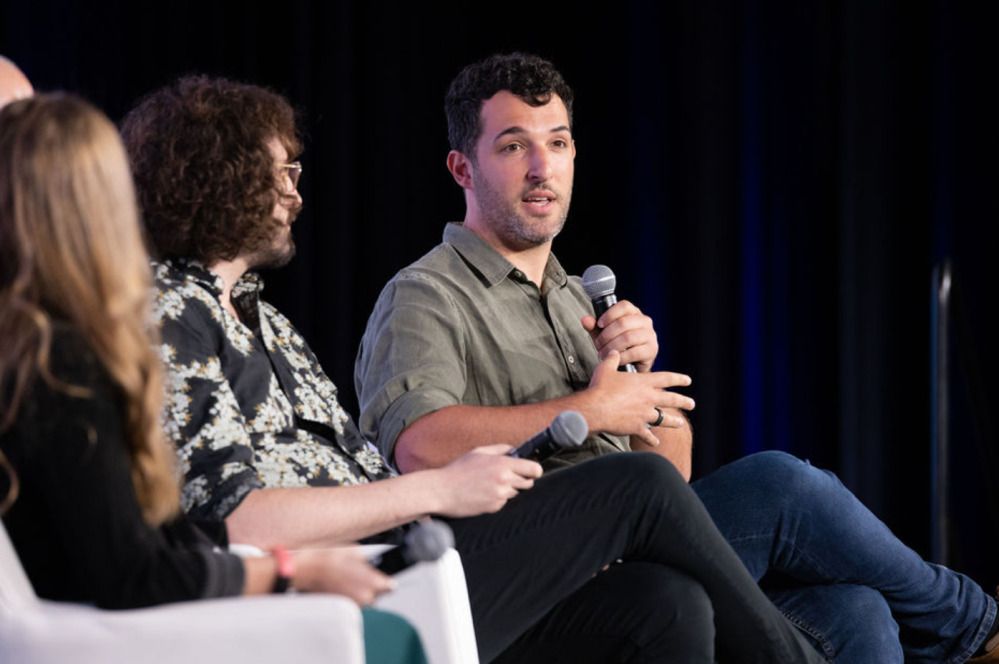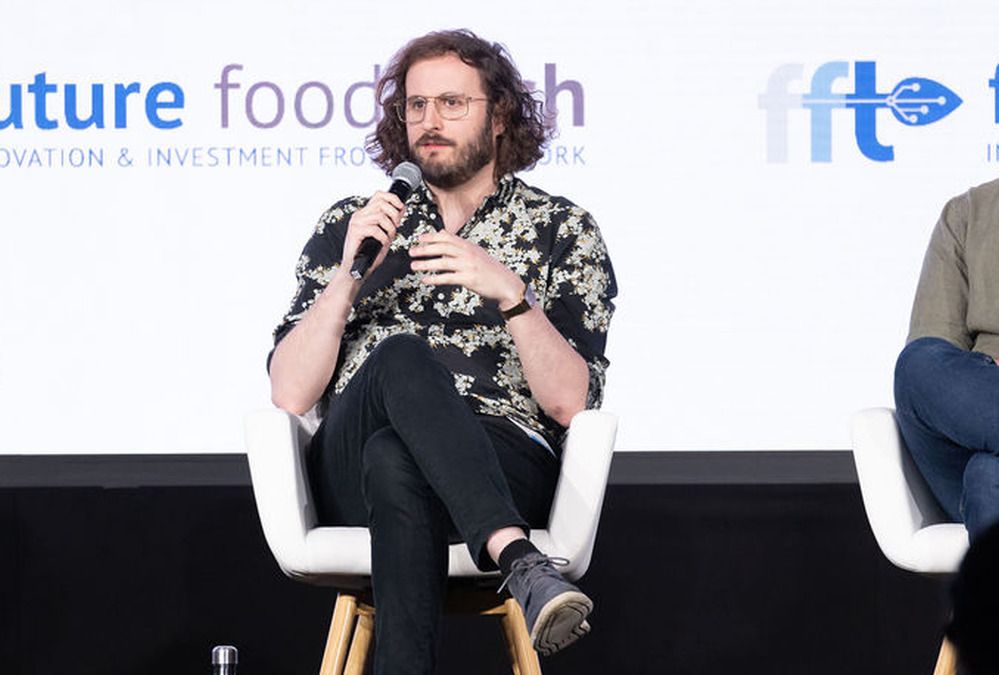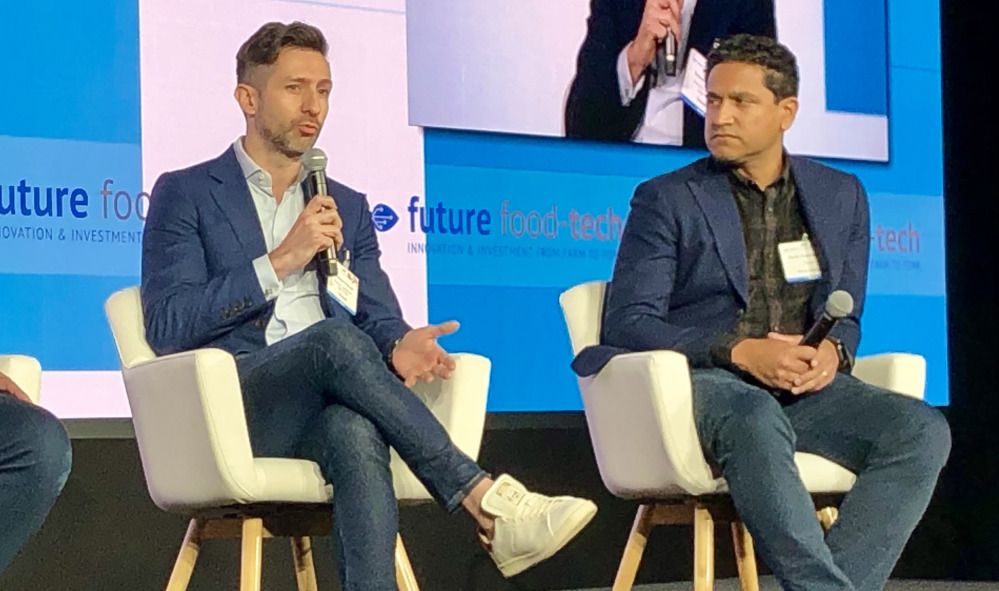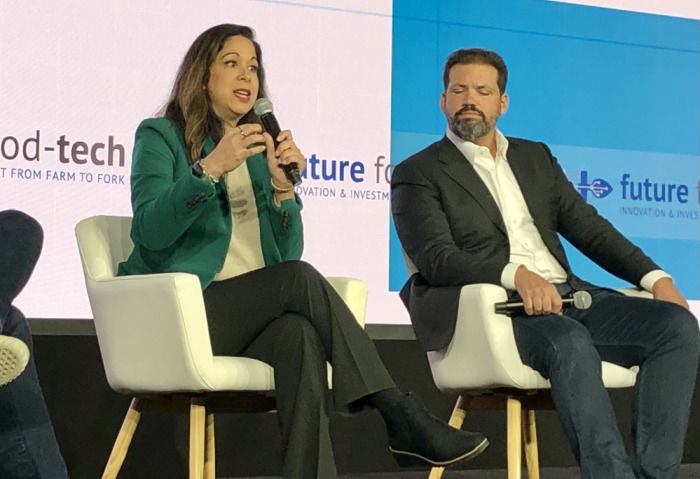2023 will be a pivotal year for cultivated meat, as a handful of well-capitalized startups hit the market and early-stage players wait with bated breath to see if consumers are sufficiently enthused to motivate anxious investors to keep funding the category, said investors at the recent Future Food-Tech summit.
Speaking to AFN at the sidelines of the conference in San Francisco, a week before cultivated pork startup New Age Eats announced it was shutting down, Stray Dog Capital managing partner and CEO Lisa Feria said she remained “very optimistic about the alternative proteins category,” but predicted that some early-stage players in cultivated meat could struggle to attract additional capital this year.
‘They’re either going to get acquired by the larger ones, or they’re going to go under’
Stray Dog has invested in some high-profile startups in the category including UPSIDE Foods, Mosa Meat, BlueNalu, and Aleph Farms. However, the sector “is behind the plant-based space in terms of investment and a lot of the smaller companies that don’t have a point of differentiation aren’t going to get funded,” Feria predicted.
She added: “They’re either going to get acquired by the larger ones, or they’re going to go under; there’s going to be a shaking up of that market, and we’re already starting to see it.
“But then we also have companies that are going to put products on the market in the US, Israel, and Singapore this year, and the level of consumer enthusiasm is going to be a key trigger as to whether the rest of the category can ride on their coat tails and get more funding.
“If there’s not a good consumer reaction, however, companies that are just being founded now, or are within a year or two of being founded, could be in real trouble.”

Will consumers pay more for cultivated meat?
Asked whether she was concerned about the quality of the first wave of products likely to hit the market in the next 12-18 months, she said: “I have zero concern over the quality. The question is, will people pay more?
“I think that the ideal space for cultivated meat is at parity or within 10% or 15% of the price [of conventional slaughtered] meat, maybe if you highlight that it’s antibiotic-free or better for the environment and so on. Anything above and beyond that, it’s going to be really hard.”


Temasek: It’s ‘time for rationalization’ in alt proteins
Stepping back to look at alternative proteins more generally at an investor panel during the event, Sebastien Pascual, a director at Singapore sovereign investor Temasek, said: “It’s time for rationalization… we have way too many companies in this space, so you already see bankruptcies, you have M&A happening, and I think if you are a well-capitalized player, you can capitalize on that and add to your tech stack.”
With a 42% drop in funding to $2.9bn in 2022, according to a GFI analysis of Pitchbook data, alternative proteins have lost some of their appeal to investors, he added: “I think tier one companies will definitely continue to be able to raise capital, but I do believe that we’re going to see more insider rounds… and probably a lot more flat-to-down rounds in this space.
“But overall, there is a focus on profitability and operating metrics; and capital light models are something that we’re going to see as much more attractive.”
Feria at Stray Dog Capital, who was also on the panel, added: “You look at this from a 20,000-foot view and say, oh, no, all these companies are failing. Well, many of them should not have been funded. Now that everything has slowed down, we can do proper due diligence, partner with entrepreneurs in a significantly more helpful way for both sides.”
‘It was a case of it’s the first meeting, here’s the deck, are you going to invest or not?’
Speaking to AFN later, she added: “There’s some level of adjustment in the market that has been happening and as an early-stage investor, we appreciate it because what happened in the past two years is that so much money that flooded the category after Beyond Meat [went public in 2019].
“But that money didn’t necessarily mean that people with expertise were coming into the space and it kind of artificially accelerated the due diligence process for everybody. We had meetings where it was a case of it’s the first meeting, here’s the deck, are you going to invest or not? It just made a lot of companies behave in an overly aggressive way, as if there was always going to be money available.”
‘Retailers were just throwing things on shelves that were not consumer-led’
She added: “Even retailers were just throwing things on shelves that were not consumer-led. I’ll use the example of plant based seafood, where you had products that were significantly more expensive and not as healthy for you. They might have no microplastics or slave labor, but most consumers aren’t really aware of those things.
“But now we are adjusting and regrouping and that’s a good thing. A lot of investors [that jumped into the category speculatively] have also parachuted back up and gone home, at least for now.”
‘We continue to be very optimistic about the alternative proteins category’
What we’re seeing now, she said, is that “companies have better fundamentals and we’re better aligned with our entrepreneurs in terms of what they need to deliver by the next raise, whereas before, they might not have gained that much [traction] and they were still getting funded.
“There have been growing pains. We’re going through that trough of despair now, but we continue to be very optimistic about the alternative proteins category, as the companies that are getting on shelf have a good consumer proposition and are built more sustainably from a profitability perspective.”
Non-dilutive funding sources for larger capex projects
Matt Spence, managing director and global head of venture capital banking at Barclays, said: “The challenge is raising the enormous amounts of capital you need to scale up in alternative proteins, much like electric vehicles or batteries.
“You can’t save the planet based on enterprise software or crypto alone, it takes capital, and capital in this environment is very expensive, and potentially even more expensive given the market uncertainty after SVB [Silicon Valley Bank, which collapsed in early March].”
Startups seeking to fund large capex projects to build precision fermentation facilities or cultivated meat plants, for example, need to seek out “investments and partnerships with corporates and strategics,” he added.
“You need to see if there are creative ways you can get some non-dilutive financing, such as debt and other things, which were critical when you think about electric vehicles and batteries.”
Department of Energy loans
Greg McParland, investment director at DSM Venturing added: “I think one of the most exciting [sources of non-dilutive funding] might be the Department of Energy loan program, which has been around for a significant amount of time, famously it gave millions in loans to Tesla. Its mandate is that you work on technologies that can produce things with less of a carbon footprint than other things.
“Of course, as everyone in this room knows, food and agriculture is ripe for this. The Inflation Reduction Act increases the mandate to do this.”





